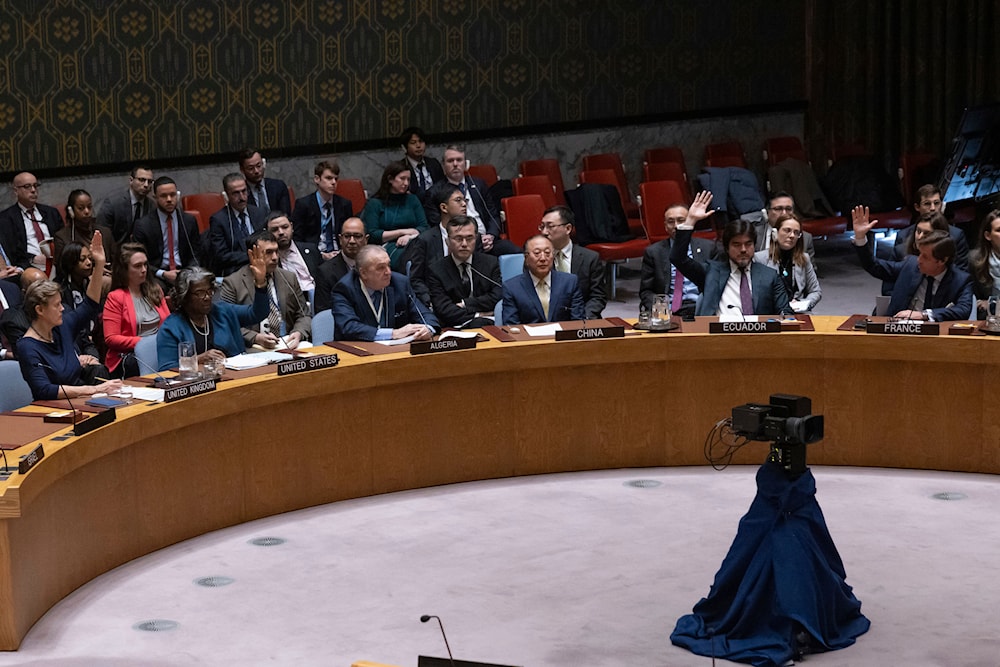UNSC vote on new Gaza ceasefire resolution postponed to March 25
As the previous US draft has failed to actually call for a ceasefire in Gaza, the new one has a clearer more direct call but seems to require "more discussions".
-

Representatives of member countries take a vote during a Security Council meeting at United Nations headquarters, Friday, March. 22, 2024. (AP)
Following the veto of a US-led draft resolution on Gaza, the vote at the UN Security Council on a new text calling for an immediate ceasefire in Gaza has been postponed to Monday [March 25], diplomatic sources informed AFP.
According to the diplomatic sources, the new ceasefire resolution that was supposed to be voted on today was postponed to make room for further discussions.
The new draft resolution, as seen by AFP, "demands an immediate ceasefire" for the ongoing Muslim holy month of Ramadan that leads "to a permanent sustainable ceasefire" adhered to by "all sides".
Eight out of 10 Security Council non-permanent members have been devising the draft, which also urges the "immediate and unconditional" release of captives and the removal of "all barriers" to humanitarian aid entering the besieged Gaza Strip.
The Palestinian Ambassador to the UN Riyad Mansour said, "We as (the) Arab Group unanimously endorse and support the draft resolution," as he had previously labeled the US-led text as biased.
However, US Ambassador Linda Thomas-Greenfield had a different stance as she said that the resolution would put the ongoing diplomatic talks to reach a deal maintaining the release of the captives at risk thereby reiterating the same claim the United States provided before vetoing previous ceasefire resolutions.
"In its current form, that text fails to support sensitive diplomacy in the region. Worse, it could actually give Hamas an excuse to walk away from the deal on the table," she said.
Read more: US-drafted UNSC resolution greenlights Gaza genocide: China's UN envoy
Why the US resolution was actually vetoed
Russia and China used their veto power on March 22 to block a US-drafted Gaza ceasefire resolution at the United Nations Security Council as it fell short of explicitly calling for a ceasefire.
The resolution garnered support from eleven UNSC members, a Sputnik correspondent said, with three opposing it and one abstaining from the vote.
While the draft resolution acknowledged the need for an "immediate and sustained ceasefire" in Gaza, it stopped short of demanding such action.
One of the key points of contention was the resolution's language, which only "determined the imperative" of a ceasefire without issuing a clear mandate.
Additionally, the document expressed support for ongoing diplomatic efforts to secure a ceasefire and called for the release of all remaining captives while also condemning "acts of terrorism," including the Palestinian Resistance's October 7 Operation Al-Aqsa Flood.
Russia, in particular, voiced strong opposition to the resolution, criticizing it for failing to call for a ceasefire unequivocally.
The Russian mission to the UN characterized the document as embodying "past distortions and unacceptable one-sided 'condemnations'," labeling it as "standard American deception."

 3 Min Read
3 Min Read








